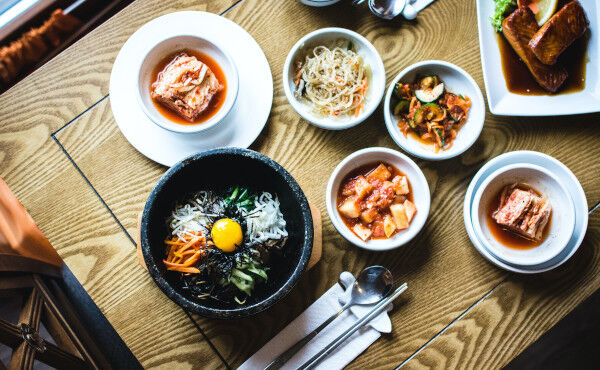Nunchi, which can be described as the subtle art of gauging others’ emotions and responding appropriately, is more than just a social skill; it's a pathway to deeper connection and understanding.
In a world that often values speed over substance, the ancient Korean art of nunchi (pronounced noon-chee) offers a refreshing counterpoint. Rooted in emotional intelligence and awareness, nunchi enables one to 'read the room' and respond to those unspoken dynamics. This ability to sense what others may be thinking and feeling can dramatically improve our interactions and strengthen our relationships, whether they be personal or professional.
Ready to explore the art of nunchi and discover its benefits? Keep scrolling for a deep dive into the concept, with some expert tips to help you implement nunchi yourself.

Understanding nunchi
Thought to have originated in Korea in the 17th century, nunchi is something that Koreans start cultivating from a very early age, and is a part of daily life. Folk tales in the country are often based on the premise that the hero uses their nunchi to triumph over adversity, while some even call it the Korean superpower.
The term roughly translates as ‘eye measure’, describing the subtle art of determining the thoughts and feelings of others to build trust, harmony, and connection. Essentially, it’s a lesson in emotional intelligence, finely tuned awareness, and an ability to remain present.
“Having great nunchi means continuously recalibrating your assumptions based on any new word, gesture of facial expression, so that you are always present and aware,” explains Euny Hong, in her book The Power Of Nunchi. “Speed is paramount to nunchi; in fact, if someone is highly skilled at nunchi, Koreans don’t say they have ‘good’ nunchi, they say they have ‘quick’ nunchi.”
According to Hong, it’s thought everyone has the potential to improve their life by honing their nunchi. “You don’t need to be privileged, know the right people or have an impressive pedigree,” she writes. “In fact, Koreans refer to nunchi as ‘the power of the underdog’ for just those reasons. It’s your secret weapon, even if you have nothing else.”
Read: How understanding your gut instinct can unlock a happier life
The benefits of Nunchi
In her book, Hong details the many benefits that possessing quick nunchi can have, from avoiding social blunders and smoothing the edges of interactions, to advancing at work and strengthening our relationships with loved ones.
“Regardless of who you are, or how complicated your relationships, nunchi can help you move through life in a way that feels harmonious for you and everyone you encounter,” she writes.
If honing your nunchi can be seen as akin to improving your emotional intelligence, even nunchi novices can start to appreciate that Hong is tapping into something powerful. “As we become more perceptive, we're more aware of the experience that others are having - which is unlikely to be exactly the same as our own,” says psychologist and author Eloise Skinner.
“We can start to understand the different motivations and factors that might be at play behind decisions, actions and intentions, and we can develop a deeper sense of empathy or compassion for others. We can also start to pick up on more subtle cues and behaviours that might give us an insight or indication into the way someone is feeling or reacting.”
By improving our emotional intelligence and awareness, Skinner also explains how we can start to step outside of our own experience, and appreciate things from the perspective of others with the added benefit of wider context. Aspects which are all intrinsic to the art of nunchi.
How to practise nunchi
So, how do you train and practise the art of nunchi? As you may have already gathered, the key is to be very plugged in to what’s happening around you. As with sharpening your emotional intelligence, being able to ‘read the room’ all starts with keen awareness.
“Observation is often the first step to improving emotional intelligence,” says Skinner. “Observe how you feel at any given moment, notice how others feel and express themselves, and take a moment to create space for those different opinions and viewpoints.”
To practise your nunchi today, start observing body language and gestures more closely, and listen to the tone of what is being said. Perhaps most vitally, however, pay attention to what isn't being said out loud.
As Hong points out: “In Korea, what is not being said is every bit as important as the words that are spoken, and a person who pays attention merely to the words is getting just half the story.”
Read more: 6 incredible things we can learn about kindness from Korean culture
-
View full details79,00 zł
-
View full details59,00 zł
-
View full details179,00 zł






.jpg?sw=600&sh=370&sm=fit&cx=341&cy=1&cw=720&ch=444&sfrm=jpg)



